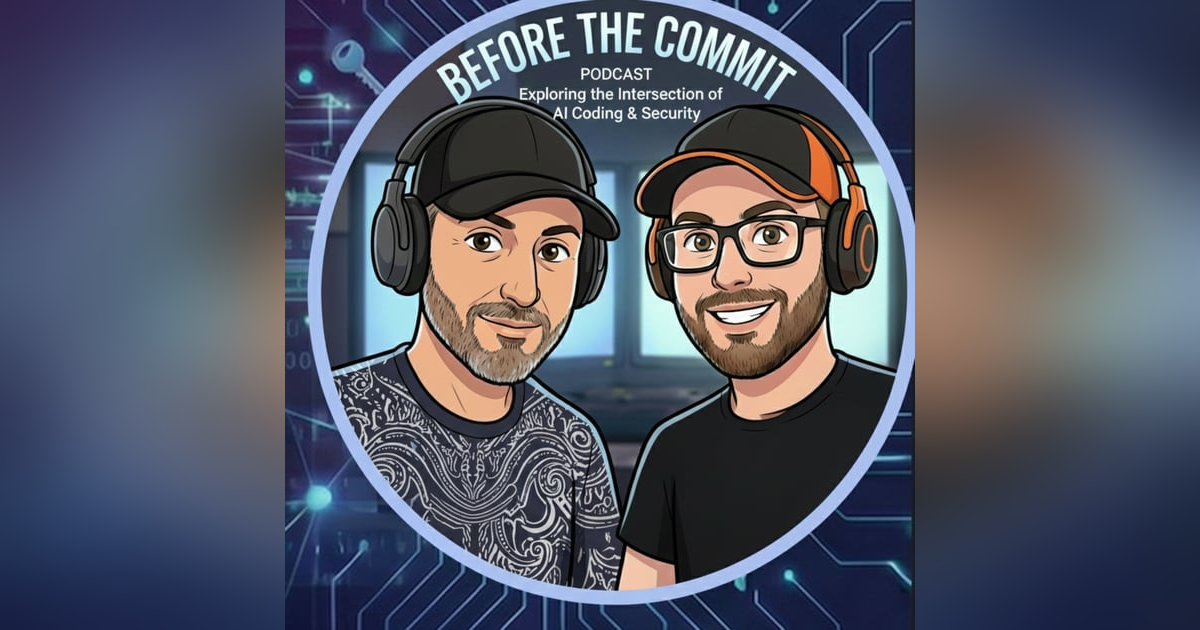Episode 7: LiteLLM

Hosts Dustin Hillgartner and Danny Gershman discuss securing large language models (LLMs) amid rising "shadow AI" risks, where employees use unmonitored tools like ChatGPT, leading to unintentional data spills (e.g., sensitive info, code). Echoing shadow IT, they stress education, policies, and multi-layered defenses over bans, as prohibition drives underground use—studies show ~40% of workers admit to AI usage despite restrictions.
LightLLM: Open-Source LLM Proxy
Central focus: LightLLM as a tool to combat shadow AI. It's a proxy funneling all LLM calls through a controlled channel, blocking public providers (e.g., forcing use of secure ones like AWS Bedrock GovCloud). Key features:
- Visibility & Tracking: Logs usage, errors, spending per employee/team; identifies high performers needing training.
- Security: Guardrails (WAF-like) scan/ block sensitive data (e.g., API keys, code) before transmission; supports RBAC via virtual keys from secret stores (e.g., AWS/Azure), preventing shared master keys.
- Management: Rate limiting, budgets, load balancing across providers/models; fallbacks if limits hit; RAG integration for team-specific data/models (e.g., support vs. data science).
- Integration: Pipes logs to observability tools; open-source core, enterprise version adds SSO.
Not a silver bullet, but enables safe, company-provided AI to boost productivity without leaks. Encourages "bring your own model" policies with oversight, avoiding moral hazards like unvetted tools exposing IP/HIPAA data. In gov/defense, it ensures FedRAMP compliance.
IDE Exploration: Warp
Brief dive into Warp, a terminal-first AI CLI (vs. code-first like VS Code/Cursor). Competes with Claude Code; runs as standalone app with natural language prompts (e.g., "change directory to X") for bash tasks (Git history, logs, Kubernetes). Adds side panels for coding (rules, autocomplete). Scope spans entire hard drive (powerful for workflows but raises privacy concerns—data sent?). Hosts note it's like an "AI makefile" for your computer, but terminal focus feels secondary for pure coding. Ties to NVIDIA CEO's quip: "English is the new coding language."
AI in Gov Contracting
AI lowers barriers for proposals (e.g., auto-generating 10-page whitepapers), homogenizing responses and flooding SAM.gov. Makes differentiation hard; calls for more human eval (demos, prototypes via OTAs) over paper reviews. Gov should adopt private-sector agility (trials, betas) while maintaining security—less bespoke risk, more platforms.
Coding's Future & Security
Debate: Will coding devolve to English/binary? Source code aids compliance/trust now (static analysis for vulnerabilities), but dynamic testing (fuzzing, WAFs) could mature to make it obsolete. AI as "Play-Doh machine at light speed" needs guardrails to avoid chaos; interim relies on human oversight.
Newz or Noize
- Anthropic Lawsuit: $1.5B class action for training on ~500K pirated copyrighted books from shadow libraries. Publishers seek payouts; signals wave of suits (OpenAI, Grok next?). Reddit sued Anthropic separately in June over data scraping.
- Copyright in AI Era: Fair use debate—reading/learning OK, but mass ingestion for commercial models? Humans can't replicate styles en masse; AI can (e.g., "new Game of Thrones"). Needs evolved laws: license data, monetize via new models (like Napster → streaming). Frequency/scalability challenges enforcement; transformative use key.
- AI in Film: Reconstructing lost 40-min Orson Welles footage (1940s) using old photos/radio + AI.


